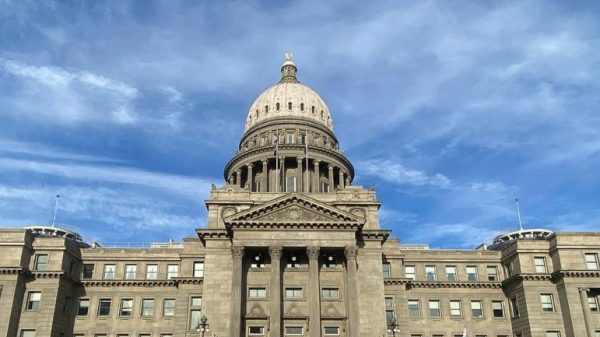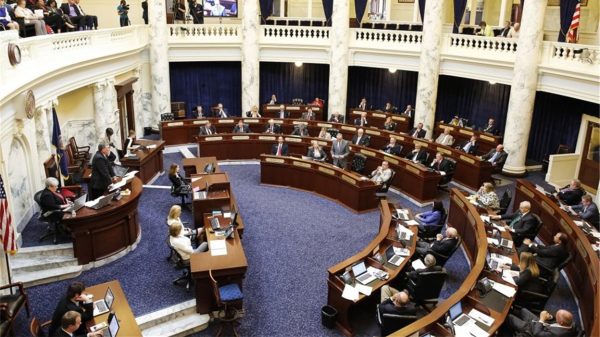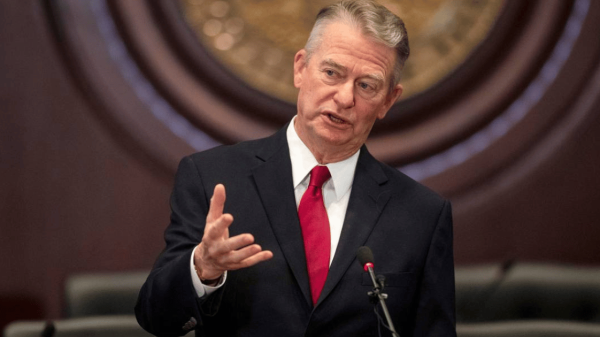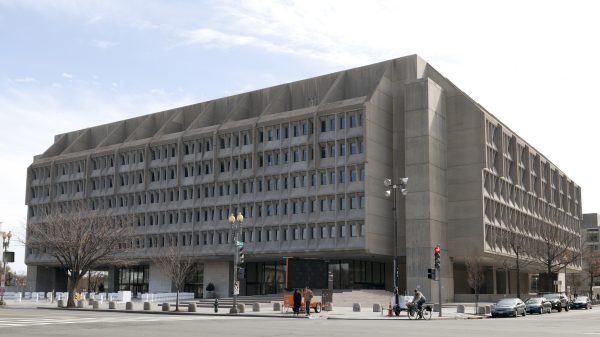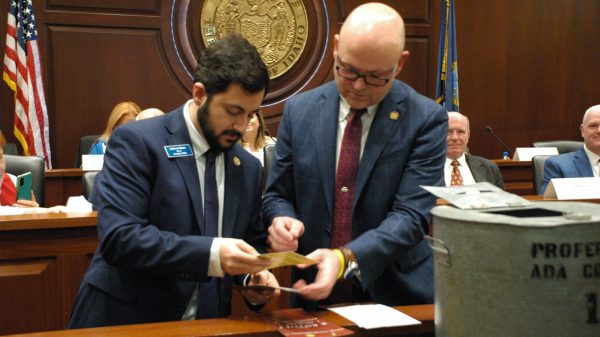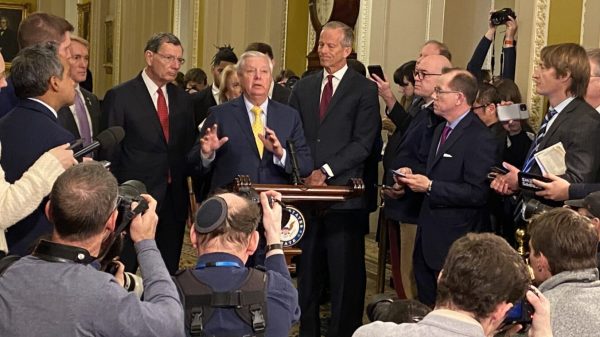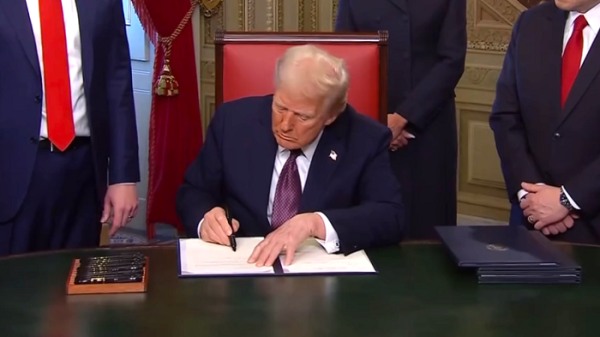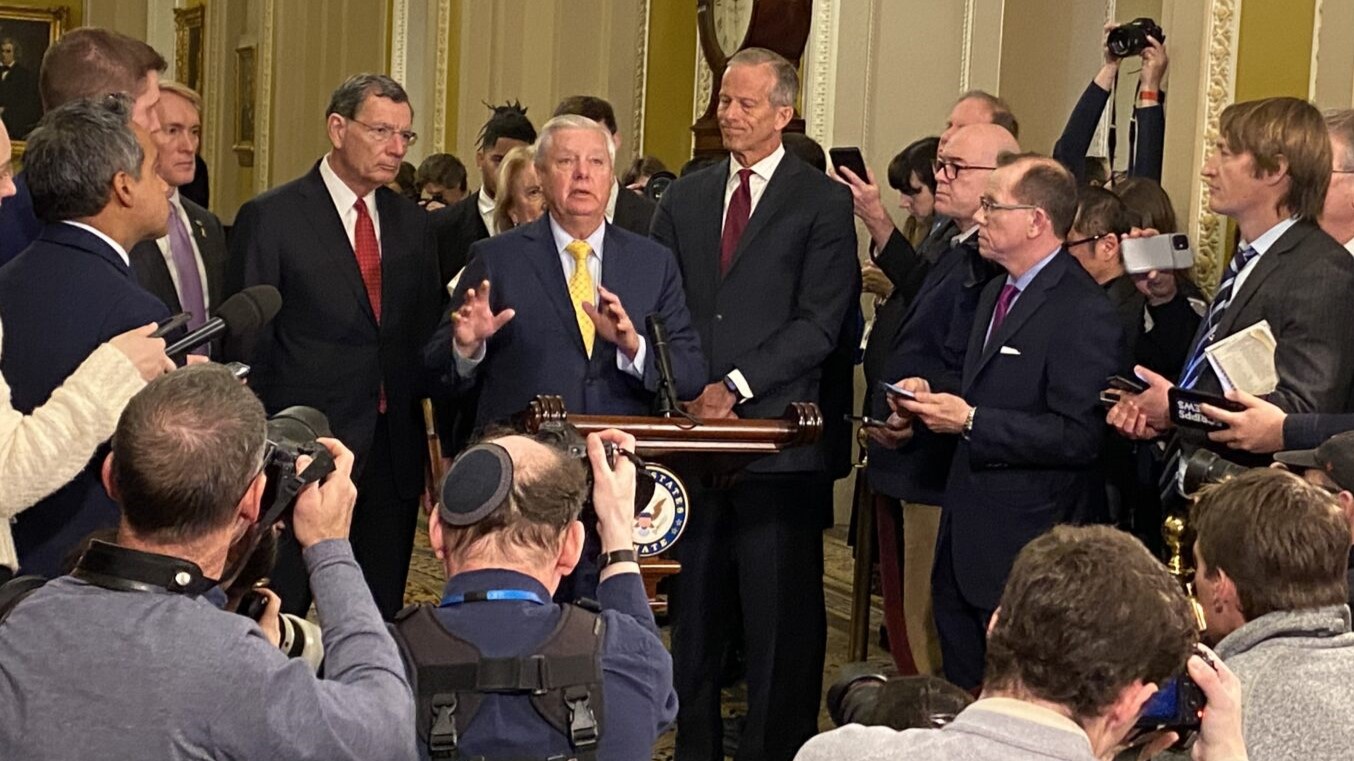(Washington, D.C.) The U.S. Senate Budget Committee chairman warned Tuesday that immigration and border security funding is running low, and urged House Republicans to go along with a plan that would provide hundreds of billions in spending before Congress takes up changes to tax laws later this year.
Sen. Lindsey Graham said following a closed-door briefing with border czar Tom Homan and White House budget director Russ Vought that the two “begged” lawmakers to quickly provide more funding for border security.
The South Carolina Republican said that instead of taking the time to negotiate agreement among GOP lawmakers on a massive package that would include border security, energy policy, defense funding and tax law, Congress should instead pass three of those initiatives now and leave the debate on taxes until later.
“I still want one, big, beautiful bill, but I cannot — after hearing what I heard today — not act,” Graham said. “After that briefing, if the Republican Party cannot provide the money to the Trump administration to do all the things they need to do to make us safe, we have nobody to blame but ourselves, because we have the ability through reconciliation to do this. And I just want to do this sooner rather than later.”
Vought told senators in the private meeting that Immigration and Customs Enforcement is quickly running out of money, Graham said.
Republicans in Congress have been debating since after the elections whether to move the major policy changes through one or two bills. And while that would normally be an inside-the-beltway discussion, the House and Senate must get on the same page if they want to use the reconciliation process.
Otherwise the GOP will have to negotiate with Democrats or scrap their proposals altogether.
A first step
The first step in the arduous process requires the House and Senate agree on a budget resolution that includes reconciliation instructions for all the committees that will take part in drafting the package.
Graham released the Senate’s budget resolution last week. The committee plans to mark it up on Wednesday and Thursday, before voting to send the proposal to the Senate floor.
The House Budget Committee is set to debate and vote on its own budget later this week, though the panel had yet to release the resolution as of Tuesday afternoon.
Normally, the House and Senate could draft their separate bills however they want and then go to conference to work out the differences. But because GOP leaders want to use the complicated, strict budget reconciliation process to enact their changes, they need to agree on whether it will be one bill or two in the budget resolution.
Graham’s budget resolution would set up Congress to first pass a bill providing hundreds of billions of dollars for the Pentagon and Homeland Security Department as well as some energy policies.
The House budget resolution is expected to include reconciliation instructions that would move all of the core policy goals — border security, defense, energy and tax — within one package.
House and Senate Republicans failing to agree to a budget resolution that has one set of reconciliation instructions would mean they cannot use that process to get around the Senate’s 60-vote legislative filibuster and therefore couldn’t get any of their bills to President Donald Trump’s desk.
Graham said during the press conference that he still hopes Congress can pass one big package, but that he believes lawmakers must get ICE, Customs and Border Protection and the Defense Department the funding they say they need as soon as possible.
“All I can tell my House colleagues: Whatever you need to do to get to one, beautiful bill, do it, do it now, you have my blessing, you have my support,” Graham said. “But if we can’t do it quickly, we need to go to Plan B.”
Graham said Senate Republicans have made a commitment to pay for the total cost of the border security-defense-energy reconciliation package by “taking money away from other parts of the government that are less worthy.”
“We’re going to spend the money in four years. That will be enough to enact the Trump immigration agenda on the security side for the entire four years and we’re going to pay for it in four years,” Graham said.
Senate Majority Leader John Thune, R-S.D., said he views his chamber’s work on the budget resolution as “complementary with the House.”
“Now granted, they are on a different track, but that’s why we have this process,” Thune said. “We will figure out how to get to the finish line and the one thing that we’re all interested in and concerned about is unlocking this process, getting started and getting an outcome.”
Committees split up funding
Graham’s budget resolution would give the Armed Services Committee about $150 billion in funding, while Commerce, Science and Transportation would be able to spend $20 billion; Environment and Public Works would have a topline of $1 billion; Homeland Security and Governmental Affairs would receive a funding level of $175 billion; and Judiciary would have a spending allocation of $175 billion.
The funding GOP lawmakers plan to put in their reconciliation bills would be in addition to the funds that Congress provides in the dozen annual appropriations bills.
Congress approved $61.8 billion in discretionary funding for the Department of Homeland Security and $825 billion for the Department of Defense in the last full-year spending bills that lawmakers passed in March 2024.
The DHS spending level was broken down among several agencies, including ICE, which received $9.6 billion, and CBP, which got $19.6 billion. Those funding levels were $1.1 billion and $3.2 billion more than the previous year’s levels, respectively, according to a summary from House Republicans.
Congress was supposed to pass the latest round of annual spending bills before the Oct. 1 start of the fiscal year, but decided instead to rely on two stopgap spending bills to extend those funding laws through March 14.
More officers, detention space
Homan, whom Trump tapped to carry out his campaign promise of mass deportations, has acknowledged that funding from Congress is key for immigration enforcement, from the hiring of more officers to additional detention space.
Enacting mass removals of millions of people in the country without proper legal status is resource heavy. ICE has a staff of 21,000 personnel, with 7,700 officers dedicated to removal and enforcement operations.
Another issue is detention space. ICE is funded to hold about 41,500 detention beds. ICE has started issuing requests for information on increasing detention capacity, according to government contracting data.
Additionally, the president has directed the Department of Defense to start holding up to 30,000 migrants at Guantanamo Bay.
Ariana Figueroa contributed to this report that first appeared on Idaho Capital Sun.











